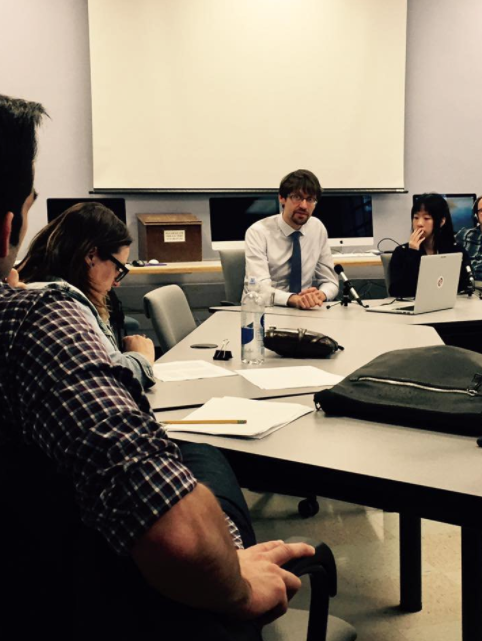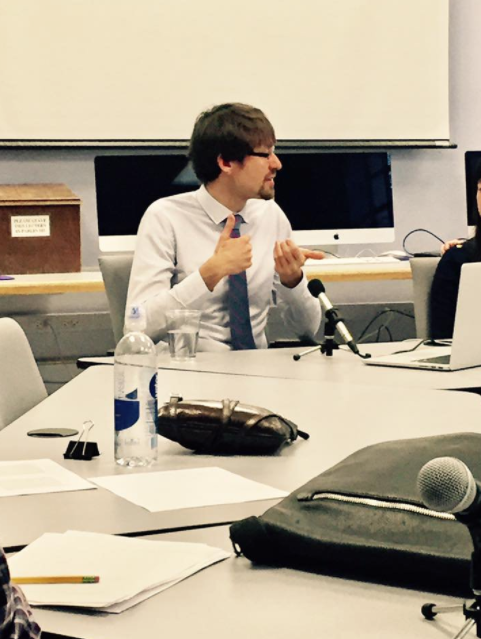
The Digital Writing and Research Lab’s speaker series consistently brings talented scholars working at the intersections of rhetoric, technology studies, and digital humanities, to the University of Texas to present their research. In February of 2017, The DWRL hosted Patrick Jagoda, associate professor at the University of Chicago. Dr. Jagoda works in the fields of new media studies and twenty-first century American literature and culture. More specifically, his research deals with electronic literature, video games, virtual words and the cultural impact of television, cinema, and the form of the novel.
Professor Jagoda is also the co-founder and manager of the Game Changer Chicago Design Lab, at the University of Chicago. The lab is a unique academic entity, which applies digital storytelling mediums and video games to the issue of sexual health in marginalized and sexual minority youth in South Chicago. The lab combines emergent research on new media forms with localized social activism, appropriating new technologies in an effort to create more effective socio-cultural pedagogy that intervene upon sites of social and economic inequality.
Dr. Jagoda’s first book, “Network Aesthetics” focuses on the bifurcated status of the term network, a word that, as he explains on his personal website, is both the “principle architecture and metaphor of a globalizing world.” The book tracks the spillage of the term network from information and computer sciences, into the humanities and into the lexicon of popular American culture. Networks are at once the organizational, formal structures of our complex systems of information visualization and distribution, and an aesthetic, a genre of sociality and interpersonal interaction seen in contemporary forms of digital media. Jagoda acutely demonstrates recapitulates the ways in which sociality is enacted, how individuals relate to others, and how communities form, organize, and interact with other communities.
Currently, Professor Jagoda is working on a book project dealing with the “complex affects, experiences, and possibilities” of playing video games. The project is described as tracing the idea of “gamification” (defined as the use of game mechanics in traditionally nongame activities) from its emergence in behavioral economics, to the contemporary moment, where game designers are “estrang[ing] game form from the sense of ‘fun’ to which it is commonly tethered, instead exploring experiences such as difficulty, reflection, contingency, boredom, and discomfort.” As there is a clear relationship between this project and the work of the Game Changer Chicago Design Lab, Jagoda’s work represents a unique combination of theory and practice, making his work important not only as it relates to the fields of video game rhetorics and digital humanities, but also to the inequities and social injustices within the contemporary historical moment.
Professor Jagoda was gracious enough to sit down with DWRL staff and UT faculty for a Q&A about his book “Network Aesthetics” and his upcoming book project. The DWRL has recorded and embedded this conversation into this post, and encourages anyone interested in video games, or the idea of networks, to listen to the talk, and further inquire into Dr. Jagoda’s work.

